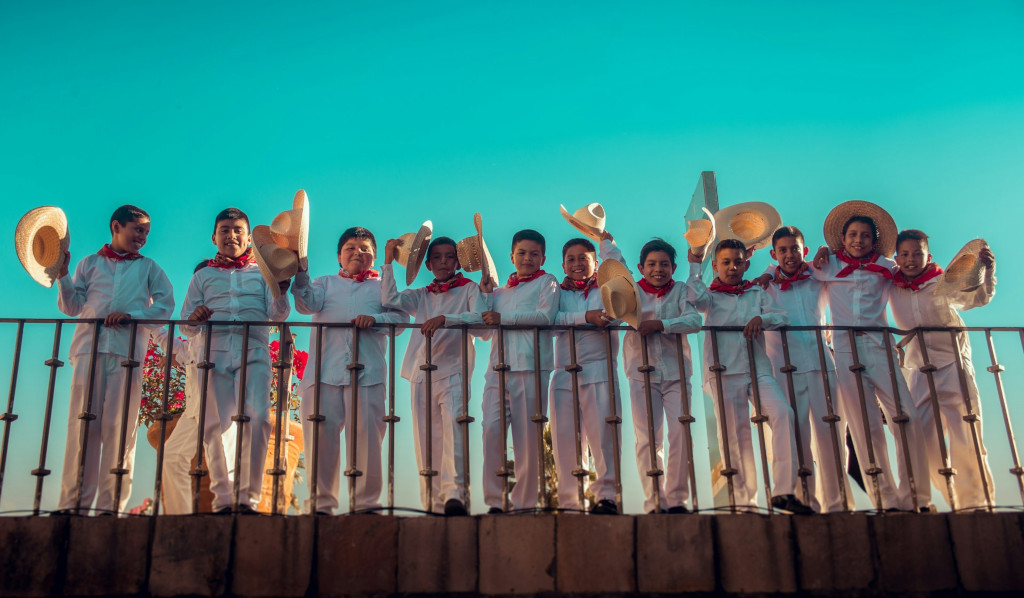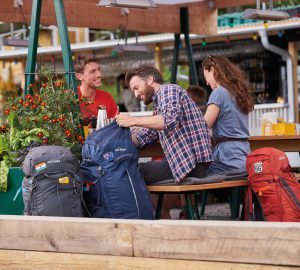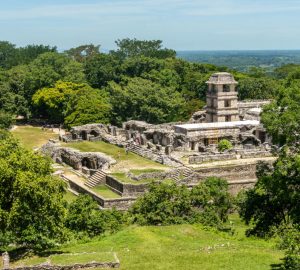Almost surreally beautiful sandy beaches, a fascinating culture, historical treasures, one of the best cuisines in the world and a good travel infrastructure: Mexico is a dream destination for travelers of all kinds. But even here, small cultural traps lurk for unprepared backpackers.
Caribbean dream, deep jungle, barren mountains and endless beaches? Or would you prefer bubbling metropolises, Aztec archaeological sites and almost kitschy historic old towns? In Mexico, you can freely combine these things to create your dream vacation. To make sure you don’t accidentally put your foot in your mouth on your trip to Mexico, we have compiled the most important rules of conduct for Mexico in this cultural etiquette guide.
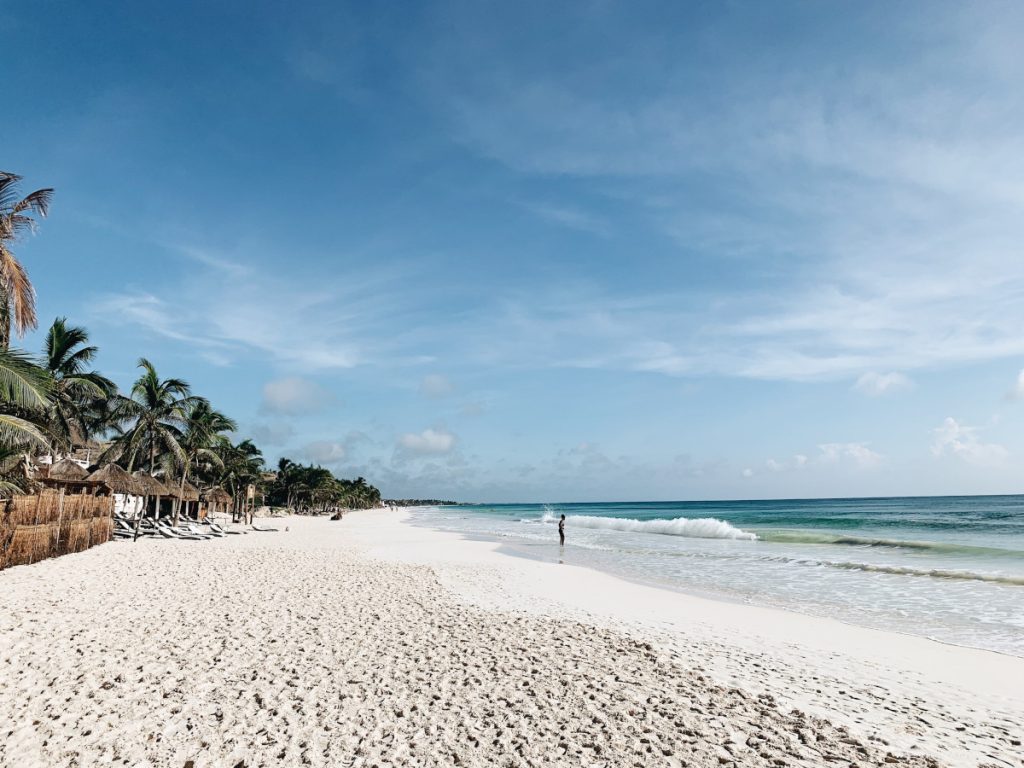
Communication
When it comes to small talk, you can rely on popular topics such as family, sport (especially soccer or football 😉 ), travel, fashion, music and art. Avoid politics and religion, even if your conversation partner talks about them. Listen and learn something new about Mexico, but don’t give an opinion yourself. Of course, you can talk as much as you like about your own country or faith.
Mexicans generally use more body language and facial expressions in their conversations than Central Europeans. There are also other fundamental differences: for example, Mexicans avoid eye contact as a sign of respect. This is particularly unusual for German travelers, who are all too familiar with the obligation to make eye contact when making a toast.
Another difference: manners are generally less direct than in Germany. Expressing your own opinion without small talk and mutual verbal probing and lots of smiles can be perceived as rude and hurtful. The situation is similar with a direct “no”.
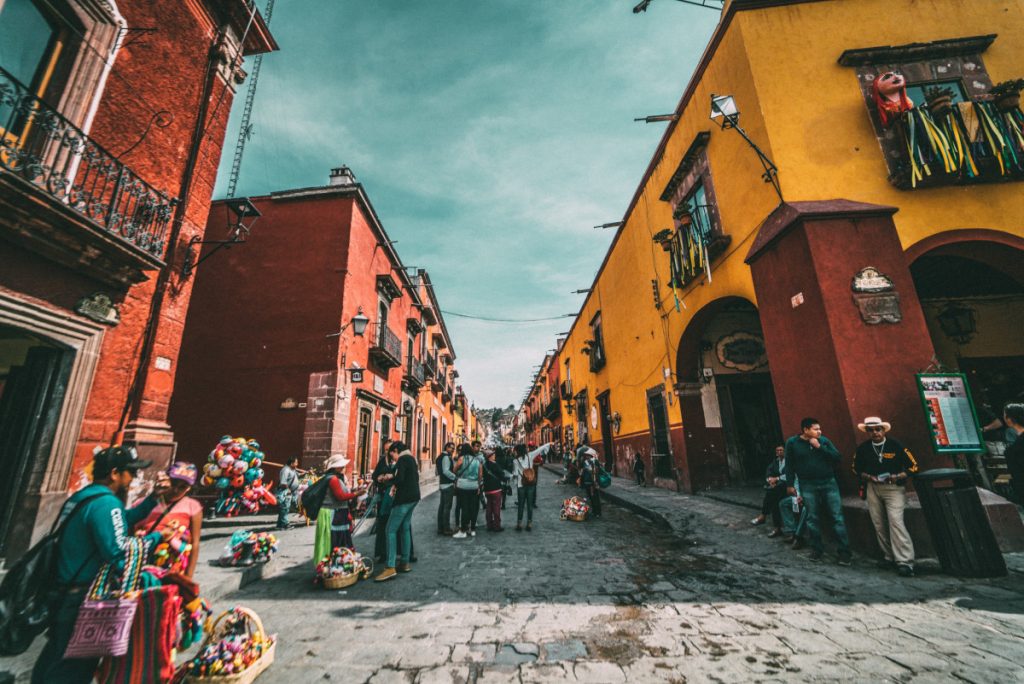
Punctuality
Mexicans are not so particular about punctuality. The so-called “mañana mentality” is based on the following question: why hurry when something can be done just as well “mañana”, i.e. the next day? Arriving on time for a private meeting is even perceived as impolite – definitely a cultural challenge for German travelers.
As a general rule, arriving half an hour later than the agreed time is a good guideline. If you have to wait longer for your appointment, it is very important to remain calm and polite. You won’t get anywhere with criticism and will only annoy the other person.
Reading tip: Backpacking in Chiapas – 3-4 weeks by bus through one of Mexico’s most diverse regions
Mordidas – processing fee for police checks
A mordida (Spanish for “bite”) is not a bribe, even if it might feel like one for backpackers from Central Europe. Plan a little extra budget on your trip for this common “processing fee”, which you will encounter especially if you are traveling by car or lose your passport, for example. Mexican police officers use the mordidas to supplement their (very modest) salaries and enable you to avoid certain penalties (such as parking) or to shorten waiting times at the authorities.
However, you should never offer the mordida yourself: Wait until the police officer offers to resolve your matter more quickly and easily. That way, both sides benefit. Even if you have moral conflicts with this type of interaction: Again, under no circumstances should you react aggressively or hurtfully. You can only lose in Mexico (and elsewhere in the world) with this kind of behavior!
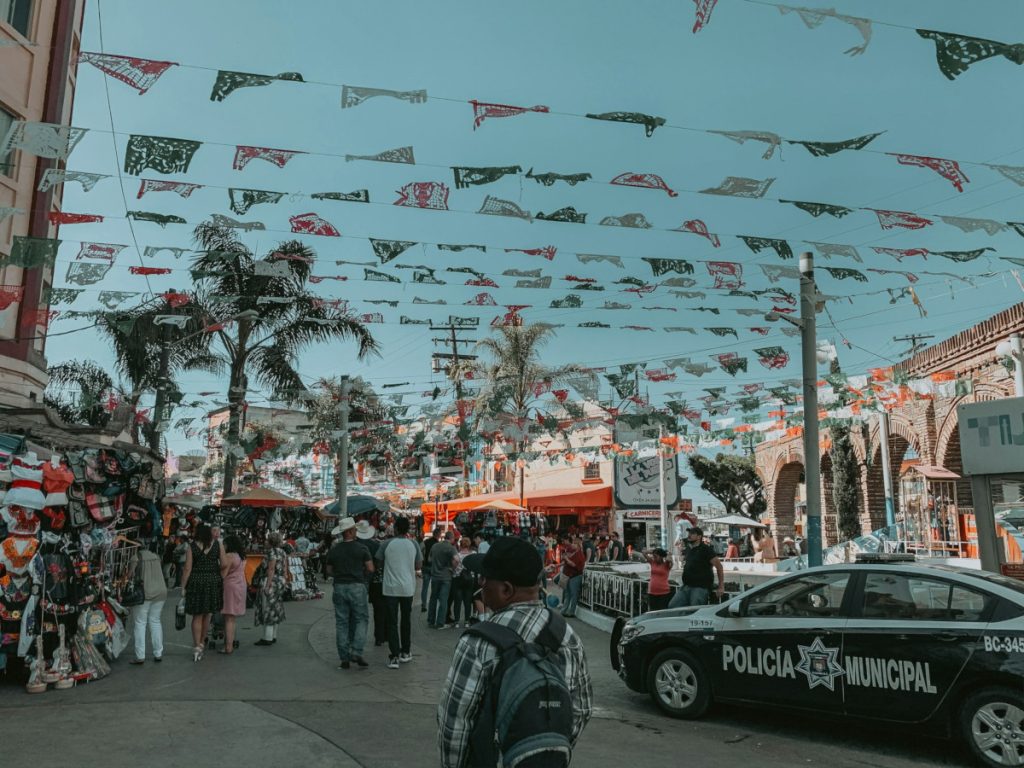
Alcohol and drugs
We don’t need to beat about the bush: Mexico’s drug cartels, stories of excessive partying and drinking binges are certainly not unknown to us all. However, you should think twice when it comes to consuming illegal drugs: possession of drugs is punishable by at least 10 years in prison. No mordida will get you out of it. Drinking alcohol in public is also prohibited – the casual beer in the park that we know from home is not an option in Mexico.
Tipping
Tipping in Mexico is slightly higher than in Europe. The reason for this, as in the USA and Canada, is the absolutely subterranean payment in the restaurant trade. You should always tip 10-15% of the bill when you are in a restaurant or bar. In cabs, however, the amount is simply rounded up. Services such as room service or carrying suitcases should also be acknowledged with a small amount of money.
Bargaining
Mexico is generally a country where prices are fixed. Especially in restaurants or stores, things cost what is written on the price tag or on the menu. At markets and street stalls, haggling is sometimes welcome or even expected, but otherwise it is not. If the seller says “con rebaja” (Spanish for “with discount”), you can negotiate. However, if there are “precios fijos” (fixed prices in Spanish), bargaining is out of the question.
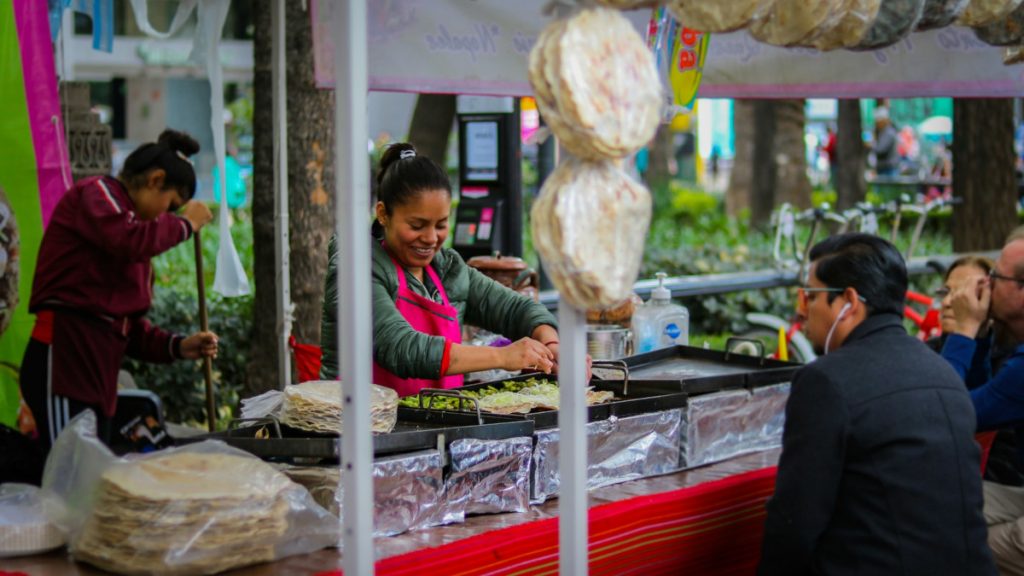
Clothing
Mexico is a Catholic country and therefore tends to be characterized by a conservative style of dress, especially outside the big cities. This applies to all genders: topless is generally frowned upon, and shorts or off-the-shoulder shirts (tops) are also frowned upon, especially in churches or other cultural sights.
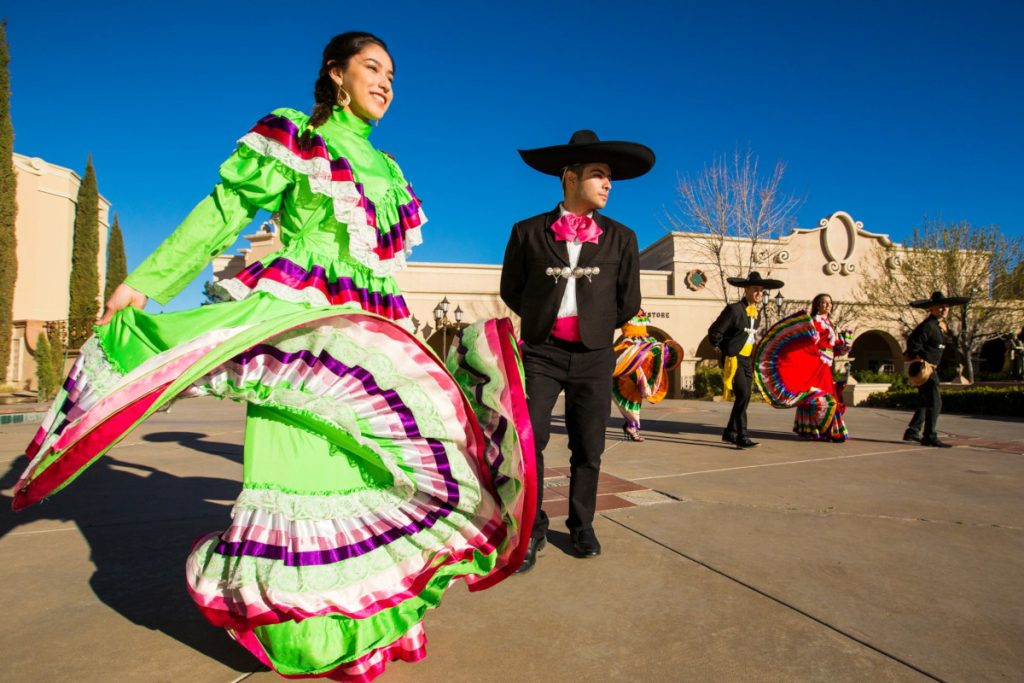
This applies to a large part of the planet. Many experienced backpackers therefore pack wide, long pants and airy cotton or linen shirts rather than mini dresses and tank tops. Especially in hot countries, long-sleeved clothing can be a blessing, as light fabric that flaps in the wind helps you cool down much better than bare skin. With the intense sunlight in countries like Mexico, you are not only automatically behaving in a culturally sensitive way, but you are also doing your skin a big favor by protecting it from UV rays – just like the locals, by the way.
The thing with the hats
A funny peculiarity of Mexico is the thing with the hats and the flags. Every time a flag (usually the Mexican flag) is raised or lowered somewhere in your area, you can observe how the male Mexicans take off their hats and hold them in front of their hearts. This is considered a respectful gesture towards the flag, nation and country. If you are also wearing a hat and are male, follow the example of the locals so as not to cause a stir or even anger.
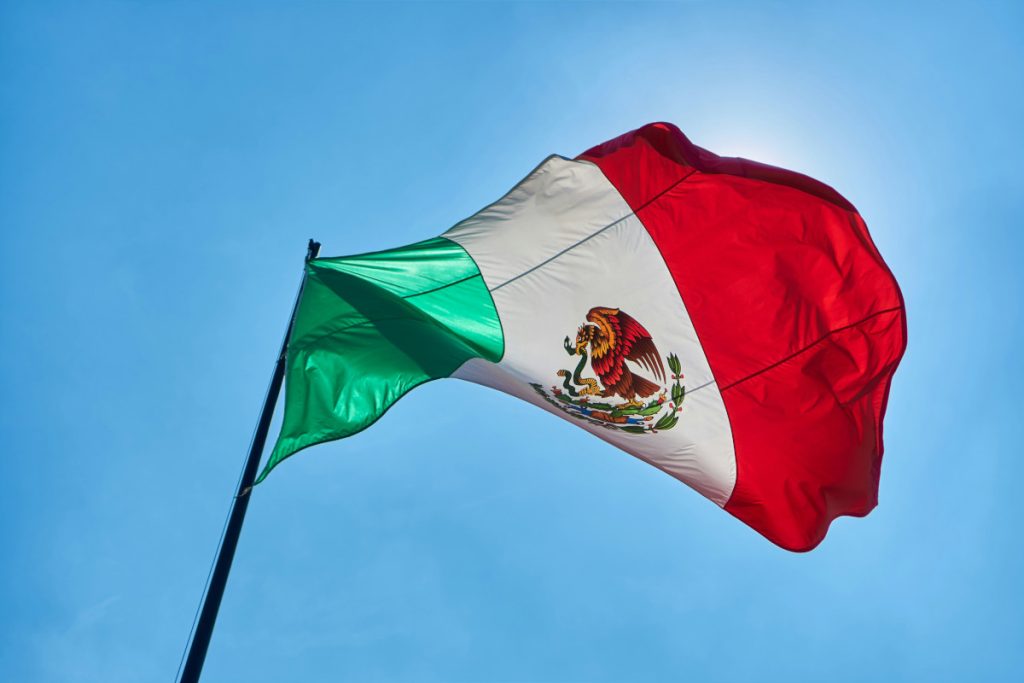
Quick facts about Mexico
- Official language: Spanish and 62 indigenous languages
- Form of government: presidential republic, federal state (32 states, as of 28.02.2024)
- Population: 127.5 million (as of 2022, retrieved on 28.02.2024 from data.worldbank.org)
- Capital: Mexico City
- Currency: Mexican peso (MXN)
- Time zone: UTC-5 to UTC-8, UTC-5 to UTC-7 (with daylight saving time, see time zones in Mexico)
- Best time to visit due to climate: December to April (dry season)
- Climatically warmest period: May
- Telephone area code: +52
Planning a trip to Mexico? You can also find lots of information at https://visitmexico.com/eng/home-2. Important information, including on the security situation, can be found on the website of the German Federal Foreign Office (Auswärtiges Amt).




